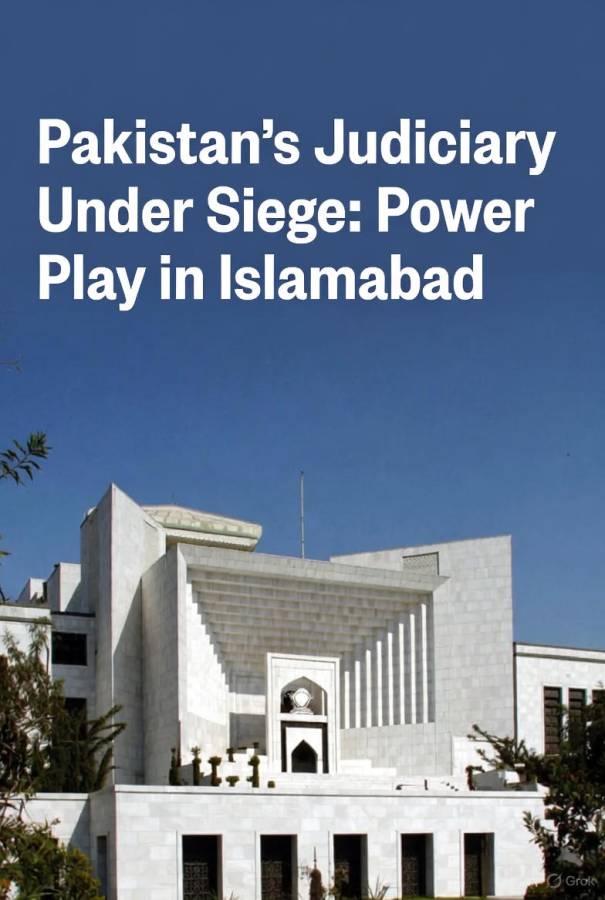
Pakistan’s internal political landscape has once again been thrown into fierce turmoil following the tabling of a sweeping constitutional amendment bill, which the opposition has vociferously condemned as a direct assault on the independence of the judiciary and a move to further institutionalize the military’s already pervasive political role. The crisis, driven by proposals put forth by a Parliamentary Committee, threatens to deepen the democratic deficit in a nation that India watches closely for signs of stability or, more often, instability.
The constitutional package includes two primaries, and highly contentious changes. The first involves a restructuring of the military high command. The amendment seeks to abolish the existing posts of the Chairman and Deputy Chairman of the Joint Chiefs of Staff Committee (CJCSC), replacing them with a single Chief of Defence Forces (CDF). While seemingly administrative, the proposal links the office of the CDF to provisions that "continuously guarantees the Field Marshal rank for life." This immediate institutionalization of what appears to be a lifetime, elevated rank for the country’s top military commander has raised alarms across the political spectrum, particularly in the context of Pakistan’s history where the ‘deep state’ often dictates national policy.
Curbing the Supreme Court
The second, and perhaps most volatile, proposal directly targets the country’s judiciary. The amendment seeks to establish a Federal Constitutional Council (FCC), tasked explicitly with "overseeing the powers of the Supreme Court (SC)." For a system already fragile, this move is viewed by critics as a clear attempt by the executive and parliamentary majority to shackle the last major independent check on state power.
The opposition’s reaction has been immediate and fierce. Senator Zafar, a prominent figure in the opposition, did not mince words, declaring the creation of the FCC as "sounding the death knell for the Supreme Court." He further condemned the parliamentary manoeuvre, stating the attempt was to "amend the law which you are amending the Constitution," and questioned the "legitimacy of the current Parliament" to push such fundamental changes without national consensus.
From global perspective, the move to curtail the judiciary is a textbook example of democratic erosion. Historically, when the Supreme Court in Pakistan has attempted to exercise its judicial review power—often against powerful political or military figures—it has faced institutional backlash. The creation of a mechanism designed to ‘oversee’ its powers is widely interpreted as a formal step toward nullifying judicial independence and cementing the supremacy of the ruling political-military establishment.
Opposition Vows Nationwide Protest
The political temperature is set to rise further as the multi-party opposition alliance, the Tehreek-e-Tahafuz Ayeen-e-Pakistan (TTAP), has announced a nationwide protest movement against the amendment. The opposition has vowed to resist the move both inside and outside the assembly. Senator Farooq Naek, who chaired the meeting where the bill was discussed, confirmed that the Senate is scheduled to take up the bill, pass it through the committee, and eventually subject every amendment to a vote requiring a two-thirds majority. The process is set to be repeated in the National Assembly before the final approval by the President.
The sheer scale of the changes, particularly those that redefine the relationship between the military command and the political structure while simultaneously subordinating the Supreme Court, suggests that the Pakistani state is undergoing a fundamental—and potentially destabilizing—realignment of power. For New Delhi, this constitutional crisis signifies continued instability on the Western border, driven by an establishment keen on consolidating its power structure at the expense of its own democratic institutions. The ensuing political unrest and judicial chaos only further complicates the internal stability of the volatile neighbour, a matter of persistent strategic concern for India.





















